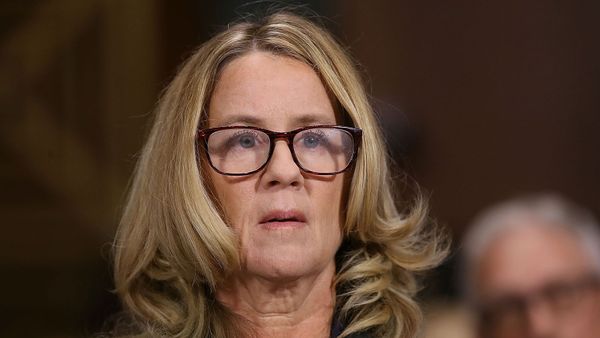
Revelations of sex abuse, both proven and alleged, are everywhere these days, from Harvey Weinstein to recent claims against comedian Aziz Ansari. As a result, the concept of consent has come roaring to the forefront, causing some people to engage in frank discussions and others to look for ways to prevent allegations down the road.
To assist with all that comes an app called LegalFling , the brainchild of Dutch firm LegalThings. The app, which is in development and seeking funding, would record a sexual consent agreement, then store it in the blockchain where it could be called upon should the need arise.
Advertisement
"During a fun night you meet your fling. Now it's time to get consent. Does your fling really want to take it further? Simply open the LegalFling app, scroll to your contacts and send a request. Your sexual preferences, including your do's and don'ts are automatically communicated," says the website.
The app generates what the app developers refer to as a "Live Contract," which they say is a "legally binding agreement. Just remember, the app is about setting clear rules and boundries [sic], not breaking them. To which extent the contract holds up in court depends on your country of residence."
The app also allows partners to set parameters of things that are or aren't allowed, like explicit language and photo/video-taking. Users can also specify that a partner must be free of STDs and whether or not a condom is required.
Boston-based criminal defense attorney Keren Goldenberg likes that the app forces the participants to communicate their parameters, as well as their likes and dislikes.
However, she cautions, "Sex contracts would never be legally binding to establish consent. Imagine a scenario where two people plan to have casual sex and they use this app to establish consent and set boundaries. Then one of the participants goes to the police and says that [she] changed [her] mind and was forced to do what they had originally agreed to do. That would be sufficient [for the partner] to be charged with sexual assault.
"The contract would certainly go to the accused's state of mind – why he thought that his partner was consenting – which would be relevant in a situation where the party who claims to have been unwilling was not very vocal about her wishes. But it's not a decisive legal defense – it would be part of the jury's consideration. The contract may be helpful for the accused but would not serve as a defense," she emails. For their part, the app site says that consent can be withdrawn at any time, with one touch; or apply to just a few hours.
Indeed, this isn't as new-fangled as it might seem, although the legal contract component is taking things to a new level. "Some people already use apps to negotiate sex more informally and in non-legally binding ways," says Dr. Jess O'Reilly, Astroglide's resident sexologist in an email interview. "People often send texts indicating what they like and outlining their boundaries. Others use apps (like InTheMood app) to communicate their desires. This app builds upon digital approaches that are already in use."
For some, the app approach could take some of the awkwardness out of a sexual encounter. "Most of us don't have a lot of experience speaking openly and honestly about pleasure and values and bodies, so when it comes to being frank with an intimate partner about what we want and what they want, we can feel unprepared. Apps like these might be trying to bridge that communication gap," says Kristen Gilbert, education director at Options for Sexual Health. "It's also clear to me that, rather than listening to what people are sharing about their #metoo experiences, lots of folks are reacting defensively. An app like this would appeal those who think, 'I guess the only solution is a contract!'"
O'Reilly notes that consent isn't a one and done deal — people may feel differently about sex with the same partner from one day to the next. Also, "Affirmative or enthusiastic consent isn't just about ticking a box — for example, am I ticking that box because I really want to engage in a specific act or because my partner is looking over my shoulder pressuring me?"
Finally she adds,"If you're starting from the angle of 'let's sign this contract so I can cover my butt and make sure I'm not accused of anything unsavory,' it's not a good place from which to begin a sexual relationship."
Advertisement
